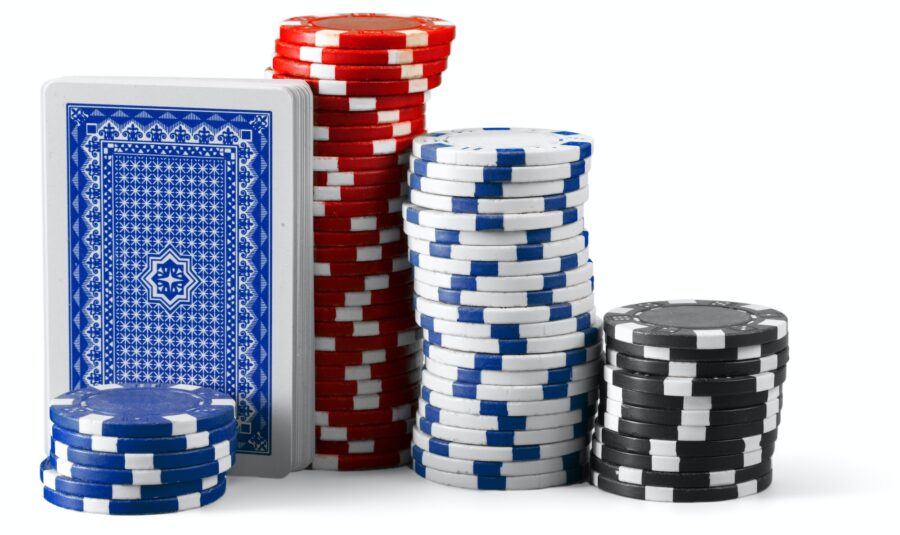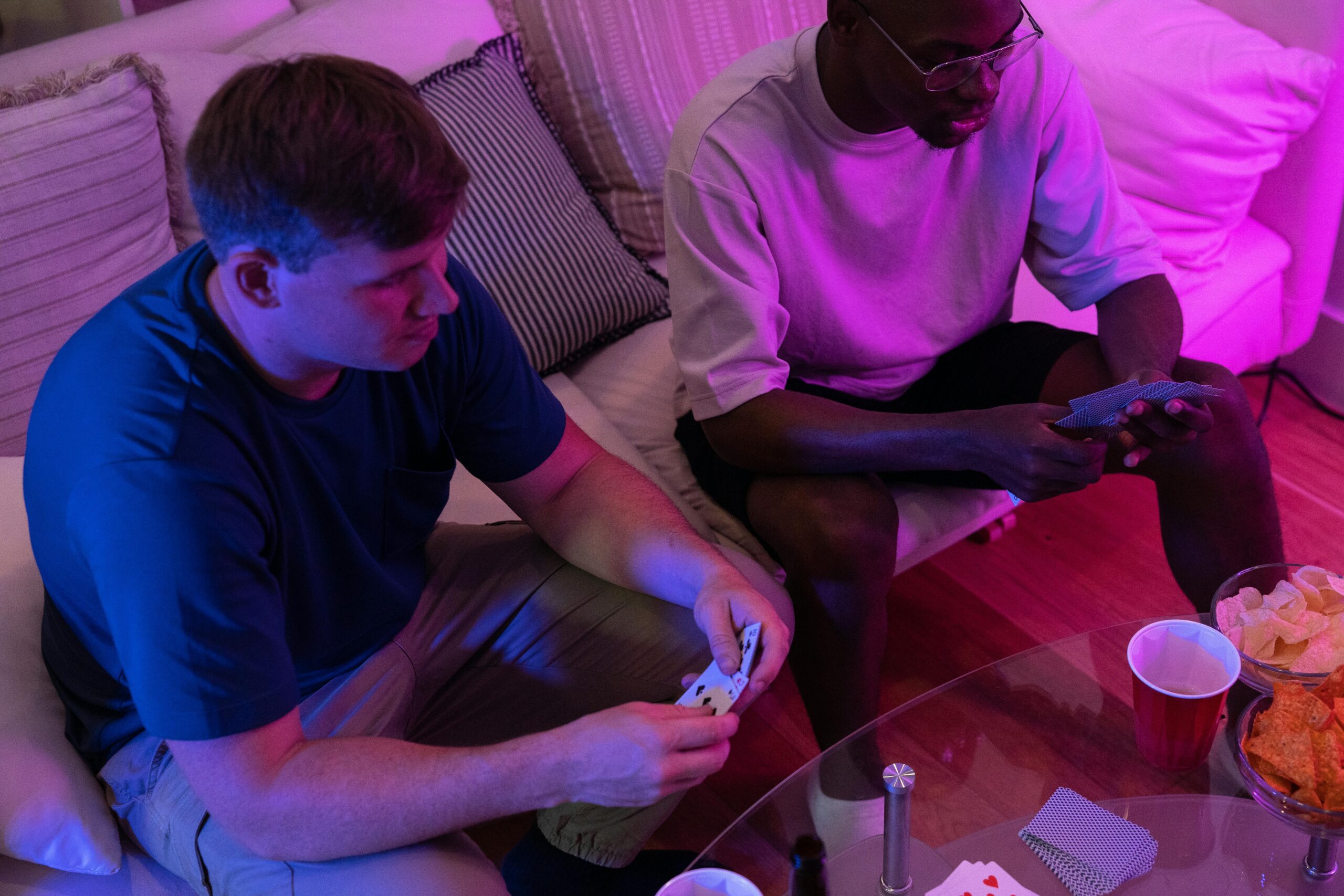Game rules
Here we will present the basic rules of the game.
To start the game
To start the game, with two or three players, the dealer deals seven cards to each participant. If you play with over three players, each player is dealt five cards. The remaining cards are placed face-down in the center of the table; this is what’s referred to as “the pool.”
How to take turns
The game proceeds clockwise, with each player taking turns asking another player if they have a specific card rank. For instance, Player A might ask if Player B has any 9s in their hand. If Player B has any 9s, they must pass all these to Player A. If they don’t have any, they say, “go fish.”
When a player says, “go fish,” the player who asked can then draw any card from the pool in the center. If the player asking for a card is lucky enough to either get it from the person they asked or pick it up from the pool, they get another turn and can now ask for a new card from any of the other players (including the player they already asked!).
As soon as one player collects all four suits of the same rank, they can place the cards face up in front of them and take another turn, yet again.
Winning the Game
The game ends when a player runs out of cards, and no more cards are left in the pool. The winner is thus determined by who has the most sets of cards in front of them.



